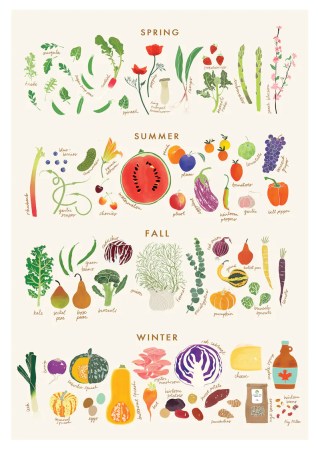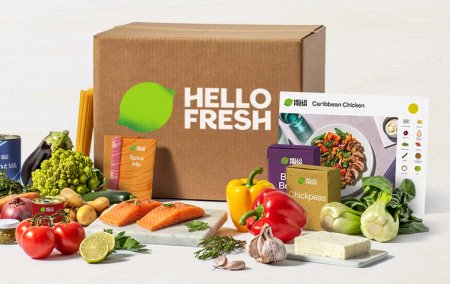The Curator independently decides what topics and products we feature. When you purchase an item through our links, we may earn a commission. Promotions and products are subject to availability and retailer terms.
When the New Year hits we often have the best of intentions, whether it be eating healthier, exercising more or adopting a new skill. No matter what our goals might be, the key is to be realistic with how we intend to achieve them. If you’re looking to whip up more nourishing meals this year while saving money in the process, here are 10 achievable tips for making it happen.
1. Plan for the week

Grocery shopping on a whim is never beneficial to our wallets – it’s when we’re most vulnerable to expensive impulse buys. Instead, map out a rough meal plan for the week (meal planning notepads are great for this) and let it dictate your grocery list. Planning ahead will also save time, as you’ll be less likely to run back to the store for a forgotten ingredient.
2. Lessen food waste

The above tip is one way to lessen food waste (since planning ahead means being more intentional with the groceries purchased and when you’ll use them). However, it’s also important to cook what’s already in your fridge before buying more, even if it means getting inventive with “kitchen sink” recipes. For example: instead of tossing broccoli stalks, spiralize them into “noodles” and throw them into a stir-fry.
3. Homemade snacks

With an intention of eating better, it’s tempting to stock up on convenient, snackable health foods like granola bars and nut mixes. While some brands are more nutrient-dense than others, they often come with a hefty price tag. Commit to making your own from-scratch snacks instead (think no-bake energy balls, hummus or protein-packed cookies). An air fryer is also a staple appliance for preparing good-for-you bites.
4. Eat out (and order) less

It goes without saying that eating out also eats away at our bank accounts. And with modern food services like Uber Eats a quick click away, ordering food to our door has never been easier. Instead of ordering food or dining out on a whim, budget for it each month and opt for healthier dishes that promise leftovers.
5. Cook large portions

Speaking of leftovers, one of the most fail-proof ways to eat well is to have nourishing food at the ready for the days ahead. Instead of cooking one portion of a recipe, double or triple the batch to create leftovers for the week. You can also freeze extra portions for a later meal when you’re too strapped to cook – your future self will thank you.
6. Think seasonal

While blueberries might be a beloved fruit in your household, they’re not the most affordable option come winter. A better cost-effective strategy is to purchase seasonal produce (which is typically higher quality as well). It’s also a great way to support local agriculture. Don’t forget to shop the frozen aisle for off-season fruits and veggies too.
7. Incorporate plant-based proteins

If you tend to reach for fresh fish or poultry for a protein-rich meal, consider adding a plant-based option like lentils or tempeh to your rotation. Plant-based staples like this are typically more budget-friendly, and there are a myriad of healthy vegetarian recipes out there that even the most devoted meat eaters will appreciate.
8. Buy non-perishables in bulk

For ingredients you know you’ll reach for time and time again, be strategic and purchase these items in bulk to save money and time (read: fewer trips to the grocery store). Prioritize healthy non-perishables with a longer shelf life like lentils and legumes, pastas, canned fish, jarred tomato sauce and baking supplies like oats and peanut butter.
9. Consider a healthy meal service

Depending on your lifestyle, cooking family meals from scratch each week might not be in the cards, so ordering takeout becomes the default. This is when a healthy meal service like HelloFresh can be beneficial to your wallet: food won’t waste away in the fridge and you can envision dinner for the days ahead to avoid last-minute impulse buys. Make sure to use The Curator’s promo code in the link!
10. Be flexible

Don’t get bogged down by the details of a specific recipe or meal plan. If your grocery list calls for salmon but trout is on sale that week, let your meals adapt to what is most affordable. Who knows, it might even inspire more creativity in the kitchen as you explore new flavour combinations and fine-tune your culinary skills.
© 2024 Global News, a division of Corus Entertainment Inc.




